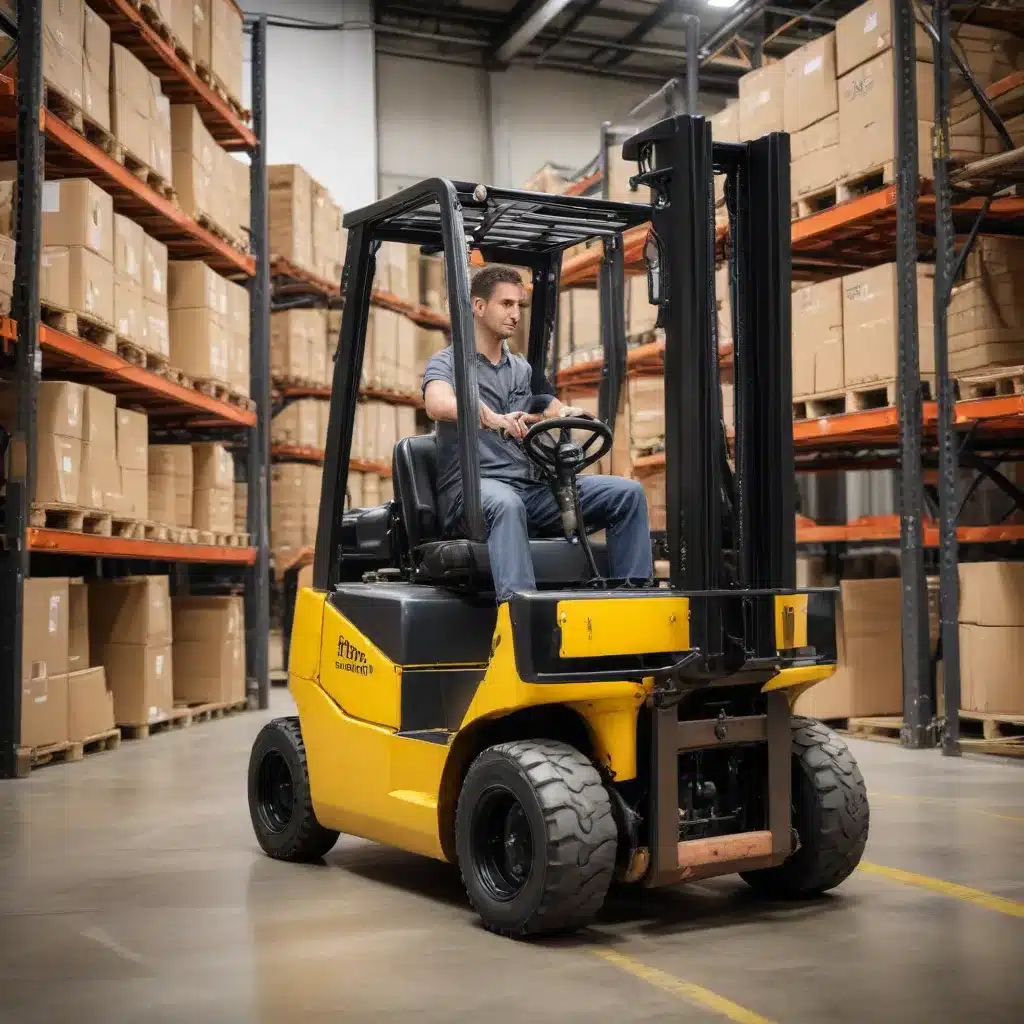
The Importance of Comprehensive Forklift Training
Operating a forklift is a highly specialized skill, and it’s not something that can be learned on the fly. Forklift operators must undergo comprehensive training to ensure they can handle these powerful machines safely and efficiently, minimizing the risks of accidents and injuries in the workplace. Whether you’re a seasoned forklift fleet operator or an employer looking to strengthen your team’s skills, understanding the significance of forklift training is crucial.
In today’s fast-paced industrial environment, safety is not just a luxury – it’s an absolute necessity. Forklift accidents can be catastrophic, causing damage to goods, property, and, even more importantly, posing a serious threat to human lives. That’s why investing in forklift operator training is no longer an option, but a requirement for any business that relies on these indispensable tools.
Benefits of Forklift Operator Training
Implementing a robust forklift operator training program can yield numerous benefits for both workers and businesses. Let’s explore the top advantages of ensuring your workforce is properly trained:
Enhanced Safety in the Workplace
One of the primary benefits of forklift operator training is the enhanced safety it brings to the workplace. Forklifts are powerful machines that can pose significant risks if not operated correctly. By receiving comprehensive training, operators learn how to handle forklifts and loads safely, reducing the risks of accidents and injuries. They gain a better understanding of forklift stability, load capacity, and proper load placement, enabling them to navigate the work environment with increased awareness and caution.
Trained operators are also well-versed in identifying and mitigating potential hazards, such as blind spots, pedestrian traffic, and narrow aisles. This knowledge and awareness create a safer working environment for everyone involved, minimizing the chances of costly incidents.
Improved Operational Efficiency
Proper forklift training leads to improved operational efficiency. Trained operators are skilled in maneuvering forklifts efficiently, allowing for smoother material handling and transportation. They understand the principles of balance and weight distribution, ensuring that loads are properly secured and balanced on the forks. This reduces the likelihood of load shifting or falling during transport, minimizing damage to goods and equipment.
Moreover, trained operators are familiar with the various controls and functions of forklifts, enabling them to operate the machines more effectively. As a result, businesses experience increased productivity, minimized downtime and delays, and optimal utilization of their forklift fleet.
Cost Savings
Forklift operator training also brings significant cost savings to businesses. Trained operators contribute to reducing maintenance and repair costs by handling equipment properly and minimizing the chances of breakdowns and damage. Additionally, by operating forklifts safely and efficiently, they help prolong the lifespan of the machines and their components.
Furthermore, with fewer accidents and damages, businesses can lower their insurance premiums and decrease inventory losses, resulting in substantial financial benefits. Investing in forklift training is a wise decision that can pay dividends in the long run.
Compliance with Legal Requirements
Meeting legal requirements is crucial for any business, and forklift training helps fulfill those obligations. Regulatory bodies have specific standards and guidelines regarding forklift operation and training, and by ensuring operators receive proper training, businesses can demonstrate their commitment to safety and adherence to industry regulations.
Forklift operator training covers essential topics such as forklift operation techniques, safety protocols, hazard awareness, and load handling procedures. By providing comprehensive training, businesses can avoid penalties and fines, maintaining a safe working environment and meeting their legal responsibilities.
Skill Development Opportunities
Forklift operator training offers valuable skill development opportunities for workers. Operators learn how to operate forklifts safely and master various operation techniques, gaining a deeper understanding of the capabilities and limitations of the equipment. They acquire knowledge of equipment functions, enhancing their ability to troubleshoot minor issues and communicate effectively with maintenance personnel.
Furthermore, forklift training improves spatial awareness and coordination, improving precision and control during operations. Operators learn to anticipate and react to potential hazards, fostering a safety-conscious mindset that benefits both themselves and their colleagues.
Increased Job Opportunities and Career Prospects
Trained forklift operators enjoy increased job opportunities and career prospects. Industries that rely on forklifts always need skilled operators to handle the equipment safely and efficiently. By completing forklift operator training designed by a reputable organization, individuals gain a competitive advantage in job applications, demonstrating their commitment to safety and professionalism.
Trained operators are more desirable to employers, as they can contribute to a safer work environment and improved operational efficiency. Moreover, within organizations, trained operators have opportunities for advancement into supervisory or managerial positions, as their comprehensive knowledge of forklift operations and safety protocols make them valuable assets to the company.
Customized Forklift Training: Addressing Industry-Specific Needs
While the core principles of forklift operator training remain consistent across industries, it’s essential to recognize that different workplaces may have unique requirements and challenges. Forklift operator training can be customized to specific industries or workplaces to address these unique needs and ensure operators are equipped to handle the specific equipment and environments they’ll encounter.
For example, a warehouse with heavy pedestrian traffic may require additional training on forklift-pedestrian interaction and awareness, while a construction site with rough terrain may necessitate instruction on navigating uneven surfaces and inclines. By tailoring the training to the specific workplace, businesses can ensure their forklift operators are prepared to handle the unique demands of their work environment.
Conclusion
Forklift operator training is an essential investment for businesses that rely on these vital tools. By prioritizing comprehensive training for their workforce, employers can create a safer, more efficient, and cost-effective work environment, while also positioning their workers for increased job opportunities and career growth.
Whether you’re an experienced forklift operator or an employer looking to strengthen your team’s skills, Forklift Reviews is here to provide the resources and guidance you need to develop a skilled and safety-conscious forklift fleet. Explore our comprehensive reviews, industry insights, and training resources to ensure your forklift operations are running at peak performance.

